
May 18, 2015
Startup roundup: Five alumni who have launched Richmond-area startups
Share this story
Entrepreneurship, particularly the development and launch of a startup business, requires robust reserves of energy, smarts and guts. Virginia Commonwealth University students and alumni have demonstrated a willingness to test themselves and their ideas in this highly competitive and demanding realm, and interest in the startup world is growing at the university — as are the resources VCU and its entities are making available to students who have the drive to pursue their business plans.
A 2014 survey revealed that 51 percent of VCU students have a high or moderate interest in starting their own company. In that same survey, 15 percent said they had already started a company, had a business idea or were actively pursuing business formation. At VCU’s May commencement ceremony, Virginia Gov. Terry McAuliffe praised VCU as “a great training ground for the real world,” while citing the university’s high number of entrepreneurial-minded students.
Eric Edwards, M.D., Ph.D., a VCU alumnus and one of the founders of kaléo, a young pharmaceutical company, said the university is a natural incubator for the startup-inclined.
“As a diverse, urban university where opportunities for mentorship, networking, creativity and entrepreneurial education are becoming increasingly a part of VCU’s DNA, it is refreshing to see the university taking a leadership role in the development of an entrepreneurial ecosystem,” Edwards said.
Here we profile five recent VCU alumni who have embraced the wide-open possibility of startups while remaining unbowed — maybe even thrilled — by their inherent uncertainty.
Andrea Goulet
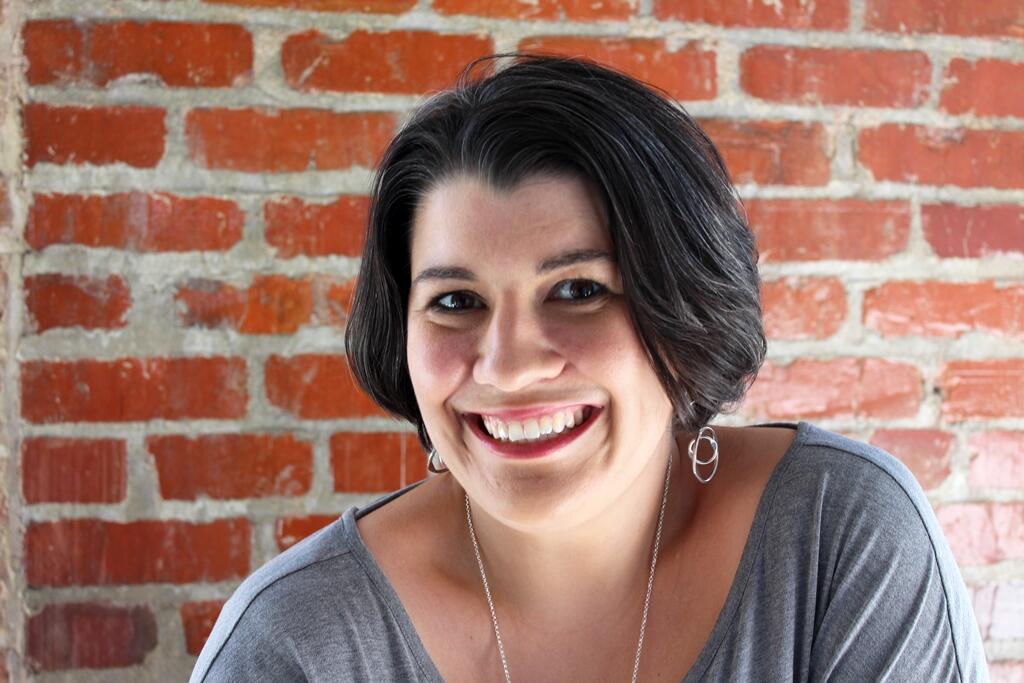
Andrea Goulet remembers the jolt of pride and satisfaction she felt one cold January morning this year when she heard the latest federal jobs report on NPR while driving to work. Corgibytes, the business she’d started with her husband, Scott Ford, had recently hired its first full-time employee. She realized she was contributing directly to that jobs report, playing a tangible part in the economic well-being of the country.
“When you combine the feeling of doing what you love with creating jobs, it’s just amazing,” Goulet said.
Corgibytes performs software coding work for existing applications, remodeling or retrofitting software for organizations that do not have the resources or inclination to do it themselves. The promising company’s roster currently features three full-time developers and three part-time workers. Goulet, who serves as CEO, said the business forecasts steady growth in the near future and hopes to hire 15-20 new developers in the next three years.
Corgibytes “really nailed something” when it identified its niche, Goulet said. By performing coding for existing applications, Corgibytes is performing an essential and complex task, but also an unglamorous one. “We’re doing something everybody needs and no one wants to do.”
Goulet said the work suits her and her team perfectly.
We aligned our passion with what the market needs.
“We aligned our passion with what the market needs,” Goulet said.
Goulet has entrepreneurship in her blood. She grew up with parents who operated a small digital graphic design business out of their home. Goulet remembers clients coming in and out of the house, and her parents giving her tasks to help with the business — often prompted by Goulet begging for a chance to pitch in.
Goulet graduated in 2003 from VCU’s School of Business, which she said featured faculty with the kind of real-world experience she valued. Her time there proved to be a helpful runway to the startup world. Goulet worked as an employee and a freelance consultant in sales, marketing and copywriting before joining Goulet in 2009 to help build Corgibytes. Four years later, Goulet, the author of the book “Brand Character Profile,” started a second business, BrandVox, which helps organizations build their brand voice.
Goulet gave birth to her first child in 2012, and she’s currently expecting her second. She’s grateful that her life offers her the freedom to oversee two growing businesses while reserving “sacred” time with her family. That independence is not limited to the CEO. Corgibytes employees are allowed flexible working hours while receiving clear expectations for performance. That kind of autonomy allows people to be both happier and more productive, Goulet said.
“I’ve created the company that I’ve always wanted to work for,” she said.
Brian Marks
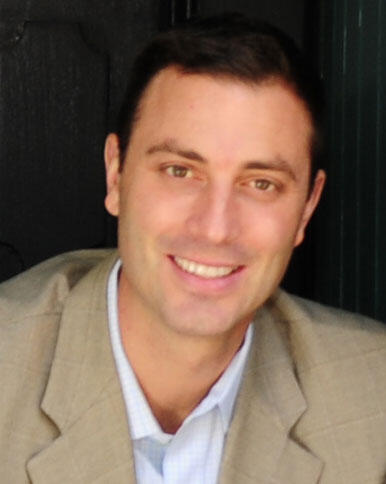
Brian Marks says he has always had the “entrepreneur bug.” While working for years in sales in the medical device industry, Marks started multiple businesses that ultimately fizzled. He was smart and careful about it, though, and never quit his day job.
Then, in 2011, VCU went to the Final Four.
Marks, a diehard Rams’ supporter who graduated from the VCU School of Education in 2000, found himself worried during the basketball team’s historic NCAA Tournament run that the university would lose charismatic coach Shaka Smart, just as it had lost young rising-star coaches Anthony Grant and Jeff Capel before him. Springing to action, he launched SaveShakaSmart.com and created a T-shirt that could be purchased by like-minded fans. It was that last piece — developing, printing and distributing the T-shirt online — that got Marks thinking of taking another crack at a startup.
“The pain it took for me to get it done, I knew others must be feeling it, too,” he said.
So Marks decided to make it a simpler process and opened Bonfire Funds, which offers its customers a straightforward way of developing and selling custom T-shirts online without any upfront costs. The business is now in its third year and is thriving, according to Marks, who says Bonfire has 16 employees, including 10 in its Richmond office. Sales tripled last year and are expected to triple again this year, he said.
Marks, who majored in exercise science and minored in psychology at VCU, has long since left his old job, and Bonfire’s success has led him to find ways to delegate the work and find talented experts to help the business continue to find ways to grow. These standouts include Kevin Penney, a VCU graduate and Bonfire’s chief marketing officer, who has been an important part of the core leadership team. Marks also kept his startup antenna raised for new opportunities, so that he pounced on the chance to be one of the founders of Belle Isle Craft Spirits, the Richmond-based maker of premium moonshine, which launched in 2013.
Marks always appreciated his day job, but he said the difference between his previous experience on “the hamster wheel” and building something new from scratch is “night and day.” He said he finds a particular sense of reward in the satisfaction of his customers.
“I feel fortunate to be helping people,” he said.
Eric Edwards
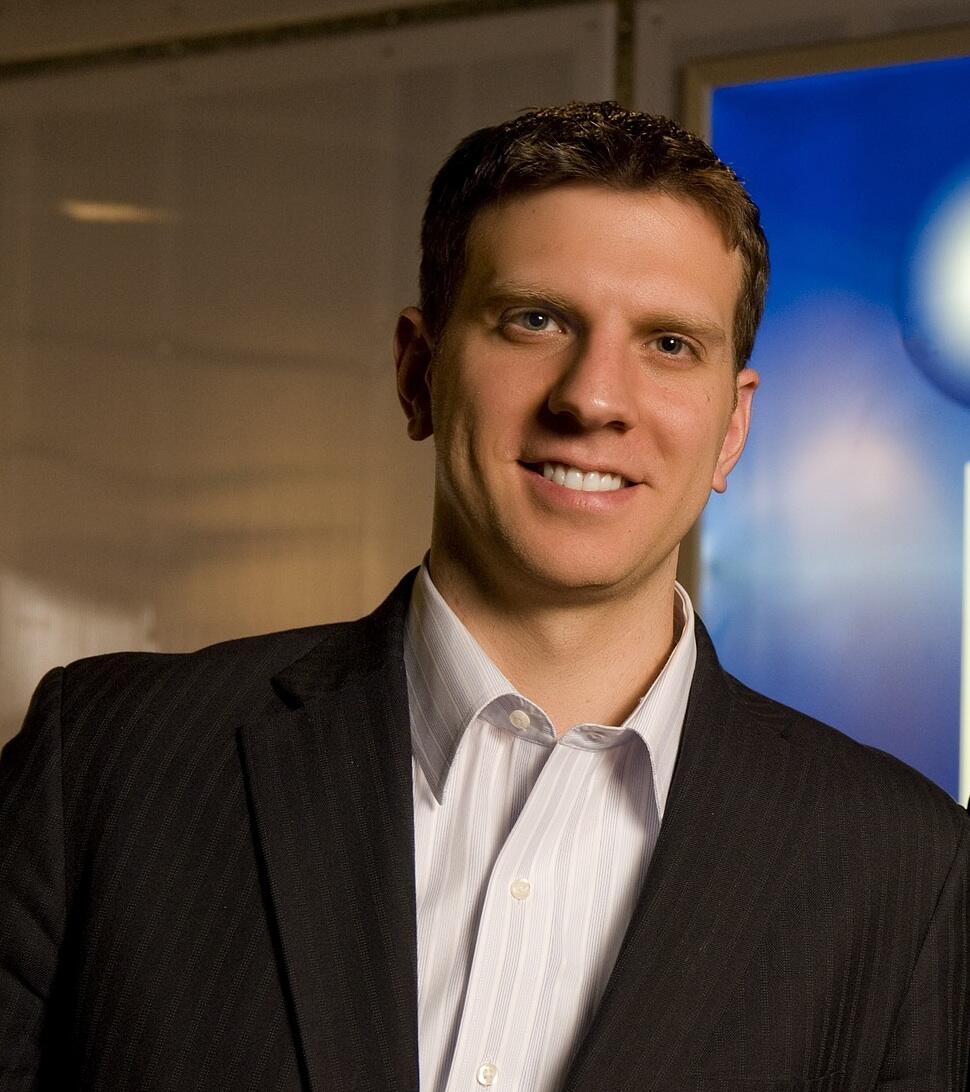
Eric Edwards and his twin brother Evan grew up with life-threatening allergies to eggs, seafood, tree nuts, peanuts and most antibiotics. They also were allergic to dust, mold, pet dander and pollen. When they were 3 years old, their physician identified them as two of the most allergic children he had ever treated.
Forever at risk because of these allergies, the Edwards brothers had to carry an epinephrine pen with them wherever they went. The pens had originally been developed for pain management for soldiers on the battlefield and were “bulky and cumbersome.” “We decided there had to be a better way,” Eric said.
Eric and his brother started their freshman year in college determined “to purposefully and passionately pursue the development of a new pharmaceutical product that met the needs of us personally as well as the millions afflicted with severe allergies.” Eric attended VCU with designs on becoming a physician scientist, while Evan studied engineering at the University of Virginia. Both were able to tailor their educations to the business dreams they shared.
For Eric, this meant taking courses in the College of Humanities and Sciences, the School of Pharmacy and the School of Medicine. He earned a bachelor’s degree in biology in 2002, a Ph.D. in pharmaceutical sciences in 2011 and an M.D. in 2013, all from VCU. During that time, the brothers devised an epinephrine auto-injector that offered greater ease of use than the standard one and launched a business called Intelliject in 2004 to develop it.
The business has since changed its name to kaléo, and it has enabled the brothers to achieve the goal they have held since they were kids. The company’s Auvi-Q device, an auto-injector that provides recorded instructions for its use, became available for prescription at pharmacies in 2013, following the long journey through development, manufacturing, clinical trials and FDA approval. The company has since expanded its focus to encompass the development of other life-saving personal medical products.
Eric, who serves as kaléo’s chief medical officer and vice president of research and development, said his education at VCU was influential in the company’s birth and initial growth, providing “a foundation of knowledge while complementing my experiential learning in the company.”
“As an example, at the same time we were preparing to run our first pharmacokinetic trial, I was taking a pharmacokinetic course through the School of Pharmacy,” he said. “I was also able to choose courses on medicinal chemistry, pharmacoeconomics and pharmacy benefit management that were applicable to our efforts at kaléo.”
The most satisfying part of a startup is seeing a napkin idea become a reality ...
Eric said he is pleased to see VCU widen its emphasis on entrepreneurship in recent years to cross disciplines and campuses. The road is a difficult one and “not for the faint of heart,” he said, and “every day brings a new set of challenges and barriers to overcome, as well as successes that can be celebrated.” Not only is the journey of the startup experience its own reward, he said, but the thrill of making it work is unique.
“The most satisfying part of a startup is seeing a napkin idea become a reality, and, in the case of our products, most significant is learning about the first life saved as a result of your work,” Edwards said.
Grant Garmezy
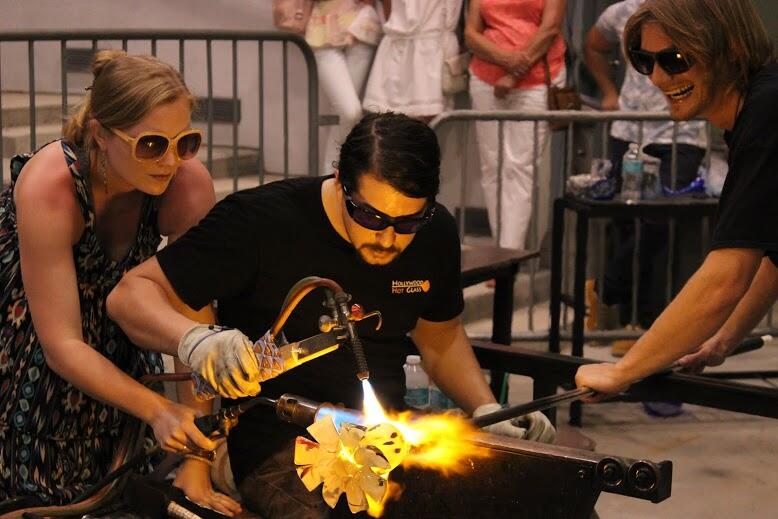
Grant Garmezy learned two important life lessons in college, and he’s applying both to create one-of-a-kind high-end glass sculptures at his Richmond-based company, Grant Garmezy Glass.
“The most important thing I learned from VCU was the power of friendship and working with other people,” said Garmezy, 30, who graduated from the School of the Arts in 2009. Despite early recognition, including earning the Royal Scottish Academy Benno Schotz Award for Most Promising Young Sculptor during an eight-week residency in Lybster, Scotland, in 2008, Garmezy initially struggled to sell his work. “I was in the dumps for a while,” he said. “Making art that wasn’t being represented, wasn’t being shown and wasn’t selling.”
But, after reconnecting with the Richmond arts community by attending First Fridays and meeting other artists, Garmezy started showing his work, and art lovers started buying. He then hired five of his fellow VCU alums to work in the hotshop with him, a move that smoothed Garmezy’s transition from student-artist to successful entrepreneur. “Glassblowing can be very stressful,” he said. “It’s such a hard material to work with and sometimes the glass is just going to do what the glass wants to do, so working with my friends makes it that much easier.”
The second thing Garmezy learned at VCU was how to break the rules. “When you get into glassblowing they teach you how to blow functional glass and that’s what everybody’s familiar with — vases and cups and plates,” Garmezy said. “But I saw glass as this wonderful material that can look like anything. It can look like stone or like wood or like reptile skin or like human hair or like ice. It’s boundless. So once I’d learned how to make a glass bowl, I took those steps and I just figured out a couple more steps to turn it into a glass turtle shell. I learned the rules so I could break the rules.”
The majority of works produced at Grant Garmezy Glass are detailed, lifelike animal sculptures, crafted by hand at 2,000-degree temperatures without the safety net of molds, which makes every item unique. The smaller items now sell for anywhere between $20 to $450, while larger sculptures fetch prices as high as $15,000 each. And, thanks to those two important life lessons, Garmezy is still enjoying what he does. “I don’t even look at it as work,” he said. “I look at it as a bunch of friends getting together to push the boundaries of glassblowing.”
Larkin Garbee
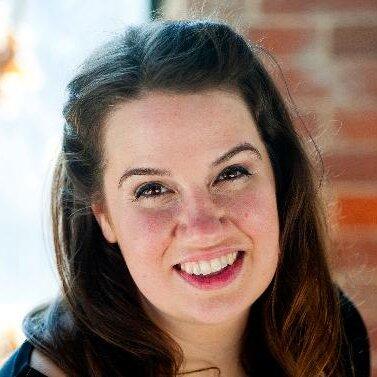
Since she was a kid, Larkin Garbee has always been coming up with “crazy new ideas” for businesses. Businesses she has operated or helped found as an adult have included a tile business — which she took over when she was just 21 — a boat repair business, a co-working space and MemberMoose, a recently launched payment management system.
In addition to being an entrepreneur, though, Garbee has also driven a host of initiatives that are promoting and spurring on other Richmond entrepreneurs. Her impact can be felt throughout the area. She brought the 54-hour startup weekend to the city after attending a similar event in Charlottesville, has helped host hundreds of community meetups, is helping organize a startup boot camp for VCU College of Humanities and Sciences students this summer and serves as a director of Lighthouse Labs, an accelerator for startups. She is an evangelist for growing Richmond through budding technological-based businesses.
It was her experience with 804RVA, the co-working space, that first drew Garbee into seeking out the community of local entrepreneurs and finding ways for them to gather so that they could support and inspire each other. Garbee had open space in the Broad Street building in the Fan where her tile business’ showroom had been. An extrovert, she decided she would start renting space to independent workers.
Working remotely can be isolating and lonely, Garbee said. A co-working space remedies that, giving freelancers, entrepreneurs and others a place to work alongside people in similar circumstances. The environment often turns collaborative, energetic and galvanizing. Garbee now has 80 subscribers to the 804RVA space.
Garbee worked full-time while she was attending VCU’s School of Business, from which she graduated in 2005, and said that experience prepared her for the around-the-clock demands of operating her own business while juggling numerous other efforts. Her skills are allowing her to spend two months this year with her husband in South Korea, where he is stationed in the military, while still managing her myriad interests back in Richmond.
I can’t enjoy an experience without thinking about the potential business applications.
Garbee believes VCU cultivates in students a willingness to take risks and pursue adventures — characteristics that align with the necessary mindset of the entrepreneur. Garbee said the startup attitude renders her forever searching and assessing, weighing and considering.
“I can’t enjoy an experience without thinking about the potential business applications,” she said.
Subscribe for free to the weekly VCU News email newsletter at http://newsletter.news.vcu.edu/ and receive a selection of stories, videos, photos, news clips and event listings in your inbox every Thursday. VCU students, faculty and staff automatically receive the newsletter. To learn more about research taking place at VCU, subscribe to its research blog, Across the Spectrum at http://www.spectrum.vcu.edu/
Subscribe to VCU News
Subscribe to VCU News at newsletter.vcu.edu and receive a selection of stories, videos, photos, news clips and event listings in your inbox.










